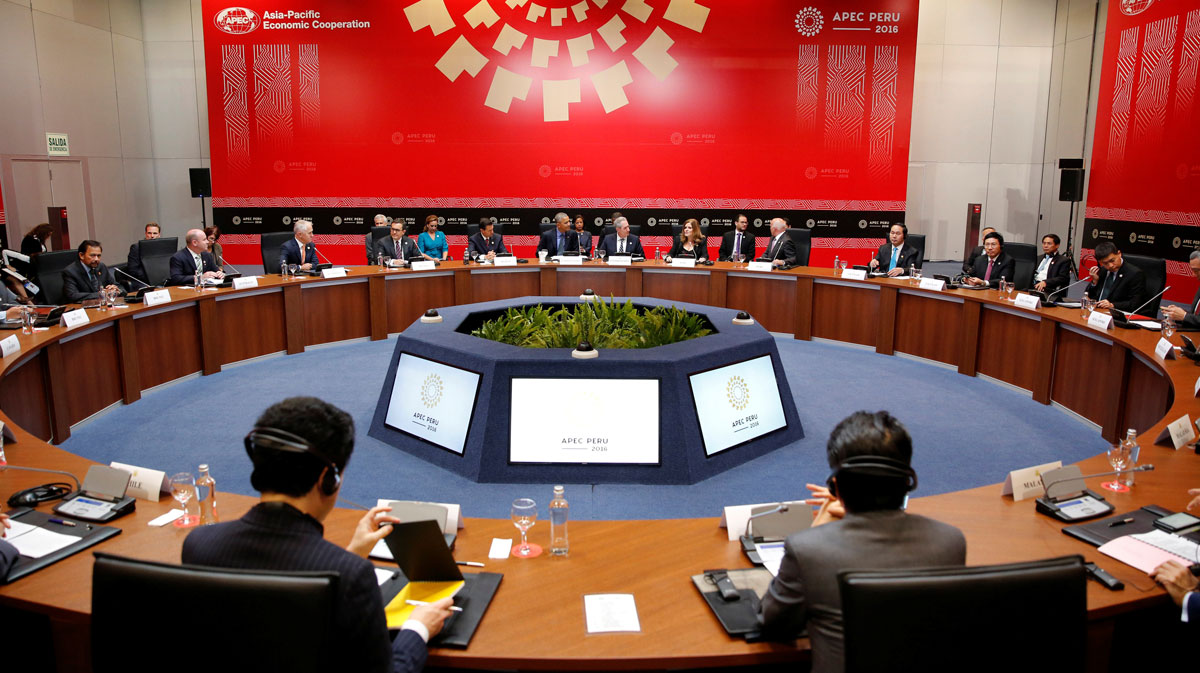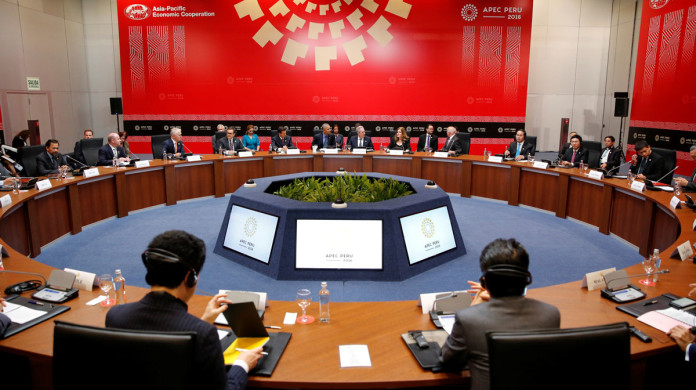SINGAPORE – The incoming president of the United States has said it loud and clear to the Trans-Pacific Partnership (TPP) trade deal: You shall not pass.
The setback for the TPP comes at a crucial time for Singapore, which is in the middle of drawing up a blueprint for its future economy – one in which internationalisation figures prominently, in order for its economy to grow externally.
And growing Singapore’s external pie has become increasingly crucial, given that its economy can expect a “new normal” of only 2-3 per cent annual growth, said Deputy Prime Minister Tharman Shanmugaratnam in September.
The TPP, which brings together 12 Asia-Pacific countries accounting for roughly 40 per cent of global GDP as signatories, is often hailed as a seminal trade framework that will enable exporters to benefit from the removal of duties on more types of goods than previous trade agreements provided for.
Although it is expected to boost Singapore’s gross domestic product (GDP) by only 2 per cent by 2025, the increased trade activity is expected to strengthen the city state’s role as a regional entrepot hub.
President-elect Donald Trump pledged in a YouTube video released on Monday that he will issue a notification of intent to withdraw the US from the TPP on his first day in office. He called the TPP a “potential disaster”, practically sounding the death knell for the agreement. The TPP effectively requires the US’s agreement in order to hit 85 per cent of the trade bloc’s combined GDP.
With the TPP all but certain to fail, leaders around the world, including those from Singapore, will now have to turn to the 16-nation, China-led Regional Comprehensive Economic Partnership (RCEP) as the next major deal to spur trade within Asia, observers said. It excludes the US.
The stakes are high: In September before Mr Trump emerged victorious, the World Trade Organisation had slashed its global trade growth forecast for 2016 to just 1.7 per cent. This would be the first time in 15 years that global trade growth has been slower than global economic growth.
Read also: Consequences of TPP demise go beyond trade
Said Deborah Elms, founder and executive director of the Asian Trade Centre in Singapore: “Since RCEP is now the only mega regional game in town, it needs to be good.”
But political leaders and trade negotiators need to learn the hard lessons from TPP.
Dr Elms said that, in particular, negotiators should take note of the anti-globalisation and isolationist rhetoric that had lifted Mr Trump to victory in the US presidential race.
Such rhetoric had signalled his suspicion of the TPP. “He assumes that whatever one party gains can only come about as a result of something the other party has lost,” she said.
Sounding a cautionary note, she added: “This is why trade agreements are so problematic.”
OCBC economist Selena Ling worries that the current political climate would impede negotiations on mega trade deals such as the RCEP. For it to succeed, leaders will have to be cognisant of how they pitch the idea to businesses and their constituents, she said.
“RCEP is still plausible, but policymakers will probably have to manage the communications strategy, especially on the cost-benefit front, more carefully.”
A good place to start getting free trade negotiations back on track would be in those areas that cover trade flows within ASEAN, said CIMB economist Song Seng Wun.
With the US retreating from multilateral trade deals and China realigning its economy, ASEAN, with its rapid growth of the middle class, is a natural market for Singapore firms to export to, he said.
“This region is still the backbone of Singapore’s growth. Even without the TPP, we can still do our best to attract foreign companies, like those from the US, to set up their regional offices here.”
Read also: Chile’s foreign minister: TPP not dead, despite Trump comments
TPP leaders pledge to continue with trade deal, with or without US
soonwl@sph.com.sg

This article was first published on Nov 23, 2016.
Get The Business Times for more stories.







